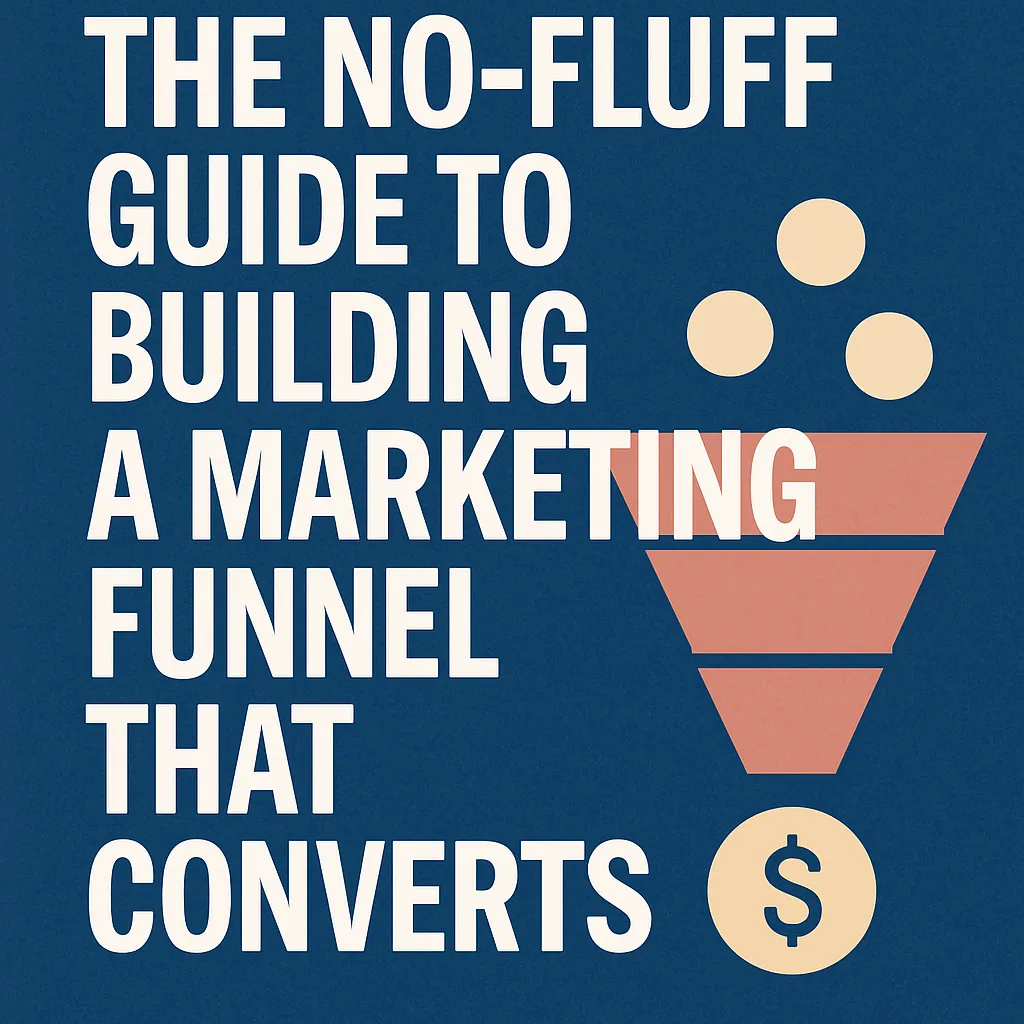
The No-Fluff Guide to Building a Marketing Funnel That Converts
The No-Fluff Guide to Building a Marketing Funnel That Converts
The word “funnel” gets thrown around constantly in marketing circles—and usually by people overcomplicating something that should be clear and actionable. At its core, a marketing funnel is a system that helps you turn attention into revenue. If yours isn’t doing that, you don’t need more tools. You need a better strategy.
This article breaks down what actually matters when building a funnel that converts—whether you’re a service provider, consultant, or scaling founder. No fluff. No hacks. Just what works.
What Is a Marketing Funnel?
A marketing funnel is the path your potential customer takes—from the moment they discover you to the moment they buy. Think of it as the digital infrastructure of your sales process. It gives structure to how you attract, educate, and convert leads into paying clients.
Without a funnel, you’re hoping that someone will stumble across your offer and magically take action. That’s not sustainable—and it’s definitely not scaleable.
The 3 Core Stages of a High-Converting Funnel
Awareness
This is the top of the funnel. The goal here is to introduce your brand to the right audience and spark interest. At this stage, people aren’t ready to buy—they’re simply becoming aware that you exist.
Effective awareness strategies include content marketing (like this blog post), social media, SEO, podcast appearances, or paid ads. The key is visibility and relevance. If your ideal client never sees you, the rest of your funnel doesn’t matter.
Consideration
Once someone knows who you are, your job is to move them into a stage where they begin to trust you. This is where you educate, demonstrate value, and clarify why you’re the right choice.
This is often where you introduce a lead magnet—something useful and relevant that invites them to opt into your ecosystem (think a checklist, free guide, quiz, or webinar). After that, email nurturing or retargeting content helps you build the relationship.
Conversion
This is the bottom of the funnel—the point where someone is ready to make a decision. Here’s where most people rush or get uncomfortable.
Conversion content should eliminate doubt, clarify your offer, and create urgency. This could be a high-converting sales page, a well-run discovery call, or an email sequence designed to close.
The biggest mistake at this stage is assuming people know what to do next. A strong funnel provides a clear, confident next step—without overwhelming or pressuring the prospect.
Why Most Funnels Fail
Most business owners don’t have a funnel problem—they have a clarity problem. Either their message is vague, their value isn’t positioned clearly, or they’re trying to automate chaos.
The truth is, no amount of automation will fix a broken offer, unclear messaging, or inconsistent visibility.
Successful funnels aren’t complicated. They’re just strategic. They are designed around:
A clearly defined audience
A specific transformation or offer
A step-by-step experience that meets the buyer where they are
If you’re skipping steps, posting aimlessly, or relying solely on referrals, you’re likely leaving money on the table.
Final Thoughts
A good funnel doesn’t just deliver leads—it delivers qualified leads who already understand your value and are ready to engage.
If you’ve been struggling with slow sales, inconsistent bookings, or random inquiries that never convert, the answer likely isn’t “more content” or “more hustle.” The answer is structure.
When you build a funnel with intention, you shift from chasing leads to attracting them.
If you’re ready to stop guessing and start scaling with a real strategy, let’s talk. This is exactly what I help clients build inside The Marketing Wife.
